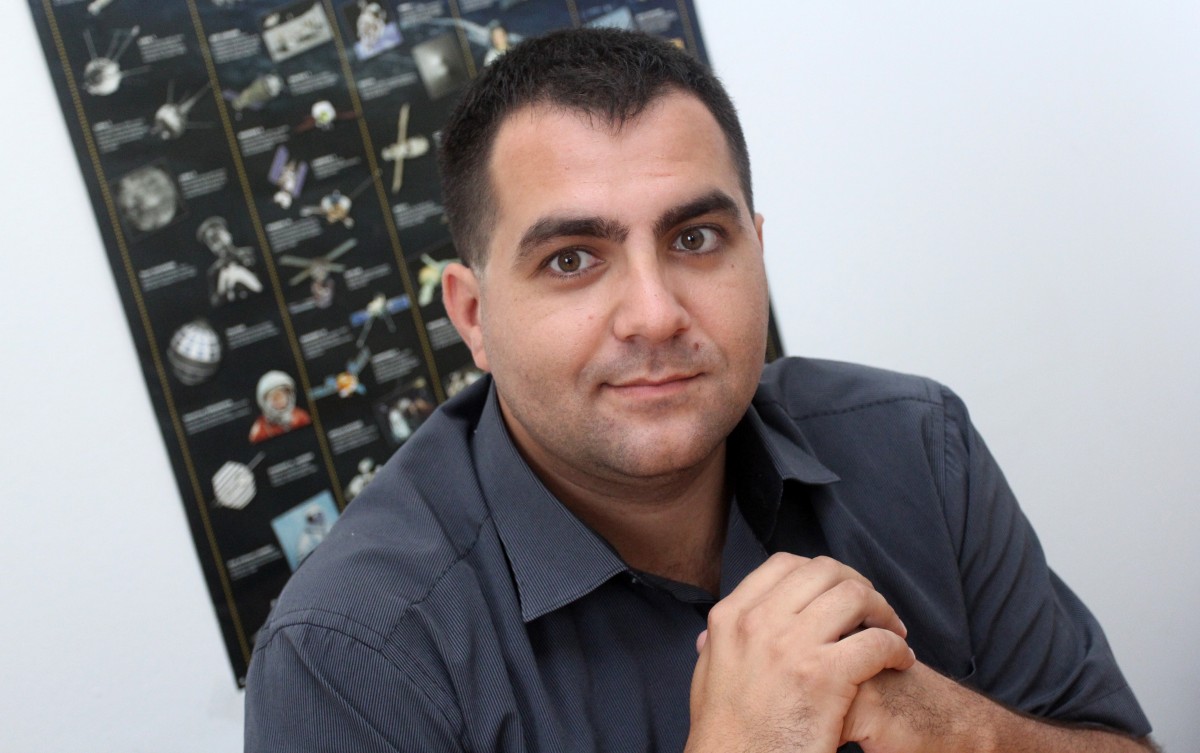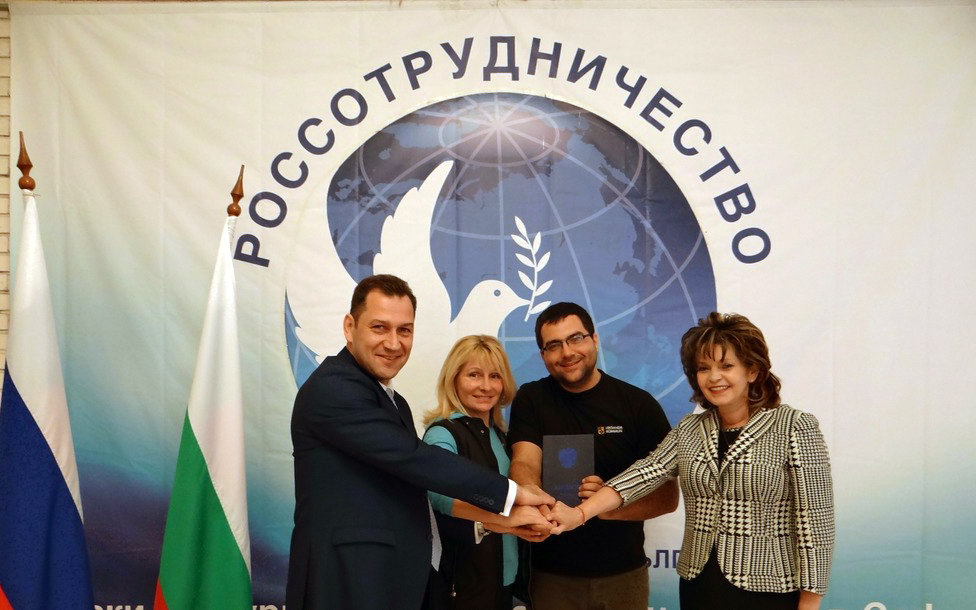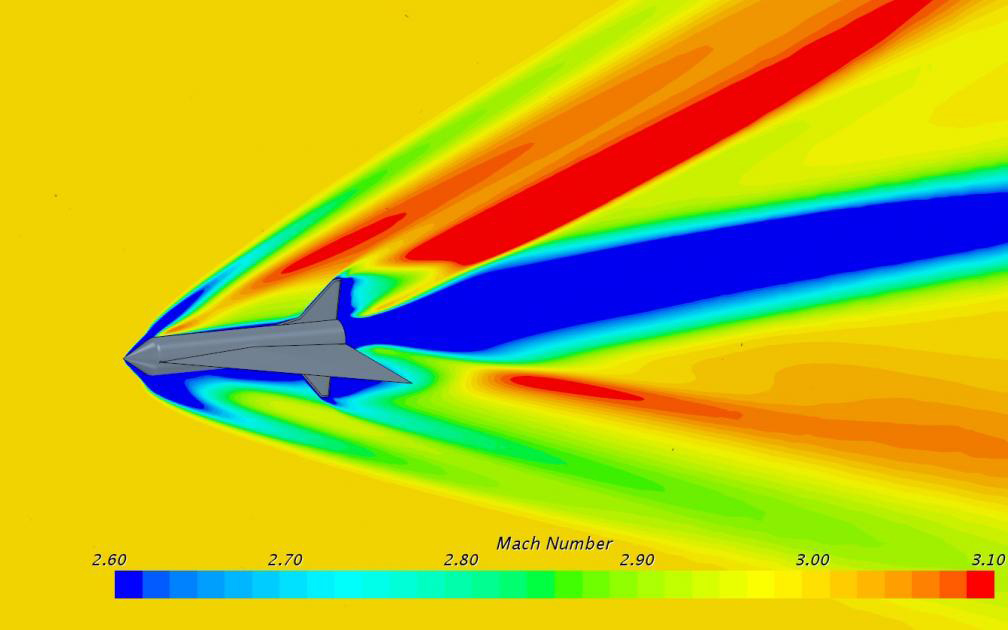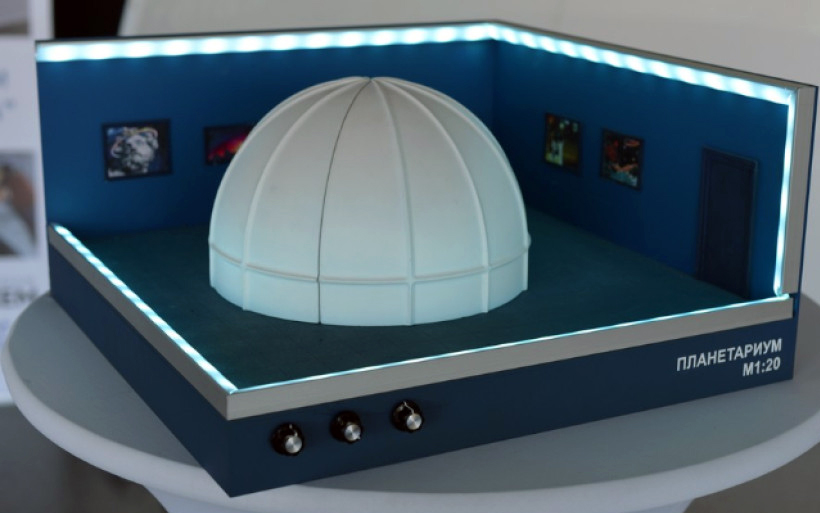Cooler than Harvard: MAI graduate from Bulgaria explains why he is more headhunted

Nedislav Veselinov, a Bulgarian graduate of Institute No. 1 Aviation Engineering of the Moscow Aviation Institute, is an active and prolific researcher and public activist in his home country. The young man is convinced that in spite of coming to the MAI with a Bulgarian university degree, he owes his successful career, professional development and huge opportunities for international cooperation to the Russian aviation institute.Nedislav told the press service how MAI helped him take his personal professional trajectory and why employers in Bulgaria prefer MAI alumni to Harvard or Oxford graduates.Why did you decide to dedicate yourself to science and space?Science and space have surrounded me since my childhood. Firstly, my dad was a physical scientist, who participated in the development of Bulgaria's space programme, he used to often travel to the USSR and Russia, and worked at the Joint Institute for Nuclear Research in Dubna. Secondly, the first Bulgarian astronaut Georgi Ivanov lived in our house for some time, and other astronauts and aviators often came to visit us, too, and communication with them had a great impact on me. And thirdly, it happened that, being a member of the space family, as a child I was often given toys related to space and aviation. This tradition has also played a role in shaping my interests.Why did you decide to study in Russia and how did you choose the MAI?The first time I came to Russia was when I was a schoolboy, and I immediately fell in love with your country. It was also then that I learned about the MAI university's great role in the aeronautical and rocket-space development of Russia.When I decided to apply to MAI, I was already a graduate of the Faculty of Physics at Sofia University. I had approached the attaché at the Russian Embassy in Sofia and told about my strong desire to study aeroplane and helicopter engineering in Russia. Coincidentally, he turned out to be an MAI graduate.
 The problem was that back then the direction I had chosen was not included in the list of the programmes offered to the Bulgarian applicants. I do not know what authorities were bypassed, but somehow the attaché was able to help me and the Russian Cultural Information Center opened the one and only place for a Bulgarian applicant in that department in the enrollment plan for that academic year. A few years later, I learned that Bulgarian applicants were allowed to apply for helicopter engineering equally as for other specialities.What impressed you most about the MAI?The hangar of the Institue No. 1 for Aviation Engineering. I loved spending my spare time there, next to the planes, talking to the designers and technologists in their workshops.The people working at MAI left an indelible impression on me. For example, I was lucky to talk to Vadim Demin, Chief Designer of the OSKBES MAI, who, in his time, took part in tests of the polar dirigible Au-30 by Jean-Louis Etienne. Georgy Zhitomirsky's lectures on aircraft design were extremely fascinating. After the classes, we were arguing with the students about who would accompany him home. He was telling us how he was a pilot in the Second World War and how he took part in the 'Königsberg operation'.
The problem was that back then the direction I had chosen was not included in the list of the programmes offered to the Bulgarian applicants. I do not know what authorities were bypassed, but somehow the attaché was able to help me and the Russian Cultural Information Center opened the one and only place for a Bulgarian applicant in that department in the enrollment plan for that academic year. A few years later, I learned that Bulgarian applicants were allowed to apply for helicopter engineering equally as for other specialities.What impressed you most about the MAI?The hangar of the Institue No. 1 for Aviation Engineering. I loved spending my spare time there, next to the planes, talking to the designers and technologists in their workshops.The people working at MAI left an indelible impression on me. For example, I was lucky to talk to Vadim Demin, Chief Designer of the OSKBES MAI, who, in his time, took part in tests of the polar dirigible Au-30 by Jean-Louis Etienne. Georgy Zhitomirsky's lectures on aircraft design were extremely fascinating. After the classes, we were arguing with the students about who would accompany him home. He was telling us how he was a pilot in the Second World War and how he took part in the 'Königsberg operation'.
What do you think are the advantages of education at MAI?MAI trains unique personnel. I can assure you that the university's diploma is perceived with great respect all around the world. As soon as I declare at international scientific conferences that I have studied in Russia, at MAI, foreign scientists immediately begin to show particular interest in my research.The practical technical training I have received there is priceless. In our small country, I feel like a celebrity compared to other professionals. That is so because very few people know how to design and build complex engineering structures on their own right after graduation.Graduates from Oxford and Harvard often come to design and research companies here in Bulgaria, but employers don't have the same respect for them as they do for MAI alumni. This is due to the fact that even some world top universities often expose a consumerist attitude towards fee-paying students. At the MAI, I studied in a Russian group, and the attitude and requirements for me were absolutely the same as for the Russian students.How did your career develop after you graduated from MAI?I should point out that I had initially planned to stay on to work in Russia. But unfortunately, while I was studying in Moscow, my father passed away, and I decided to come home to support my mother.Nevertheless, I was lucky, because my career in Bulgaria began while I was still in Russia. As I said before, our family has been always in the engineering and physics community and I was well known to many people there. The news of my imminent return reached the management of the Metal Technology Group, which has three factories in Bulgaria. They immediately offered me the job of Director of Innovative Technologies, and I was thrilled about the opportunity. I eventually worked for them for a year and a half, after that I went to a company that produced sensors for cars, ships, aeroplanes, and spacecraft. I managed technical projects to design new aviation sensors for regulating pressure and temperature in aircraft tanks.Popular Mechanics has recently written about your scientific article, making your research famous around the world. Can you tell us what your research paper that they cited is about?The point is that my team and I want to design an aircraft that can fly to Jupiter. Everyone knows what an aircraft looks like on Earth, but there's no idea what an extraterrestrial one would look like. We decided to start by designing an engine that would have a nuclear reactor instead of a fuel cell. The value of the paper resides in the fact that we calculated the engine thrust at different altitudes and determined where the plane would be able to fly steadily. In the end, we chose a flight altitude up to 58 km, where the temperature in the heating chamber is 600 K while the mass is 1,000 kg.

What other scientific projects are you running today? Does Russia support you?I work very actively with the Russian Cultural Information Centre and the Russian Embassy in Sofia. I am currently implementing a mobile planetarium project with the support of Rossotrudnichestvo. The planetarium has a height of 5 metres and is designed for 15 people, which is actually enough for a small city like Sofia.A large trucking company in Bulgaria has also become interested in that project. It lent us its workshop for the construction of the planetarium. There we tested the strength of the structure made of glass with epoxy resin. The planetarium consists of a dome and a cylindrical part assembled from matrices - planetarium segments - which allows it to be assembled anywhere.Another project I am carrying out with the support of the Rossotrudnichestvo is the first Bulgarian aircraft simulator called Photonics™. I designed, assembled the cabin with avionics and a control panel with my own hands. The flight simulator attracted a lot of people. Before the pandemic, thousands of people came to practice piloting or just to have fun. In addition, with the support of the Russian Cultural and Information Centre in Sofia, we hold an annual aviation and space forum that is widely known in Bulgaria. During the forum, various events are carried out, for example, our forum was a key partner from the Bulgarian side in the Youth Science and Technology Forum "Ot Vinta!" (translated as "Clear prop!") in spring 2018. In total, around 4,000 people have already participated in our events.I am also co-organising the Science and Technology Forum "Days of Space and Aviation", which has been held at the RCCI in Sofia for several years now. In December 2019, Russian cosmonauts Sergey Zaletin, Alexander Lazutkin and the first Bulgarian cosmonaut Georgi Ivanov visited our forum. As part of the forum, we hold the largest aerospace exhibition in Bulgaria, with major companies like Lufthansa coming to visit us, as well as workshops with physical experiments.
In addition, with the support of the Russian Cultural and Information Centre in Sofia, we hold an annual aviation and space forum that is widely known in Bulgaria. During the forum, various events are carried out, for example, our forum was a key partner from the Bulgarian side in the Youth Science and Technology Forum "Ot Vinta!" (translated as "Clear prop!") in spring 2018. In total, around 4,000 people have already participated in our events.I am also co-organising the Science and Technology Forum "Days of Space and Aviation", which has been held at the RCCI in Sofia for several years now. In December 2019, Russian cosmonauts Sergey Zaletin, Alexander Lazutkin and the first Bulgarian cosmonaut Georgi Ivanov visited our forum. As part of the forum, we hold the largest aerospace exhibition in Bulgaria, with major companies like Lufthansa coming to visit us, as well as workshops with physical experiments.